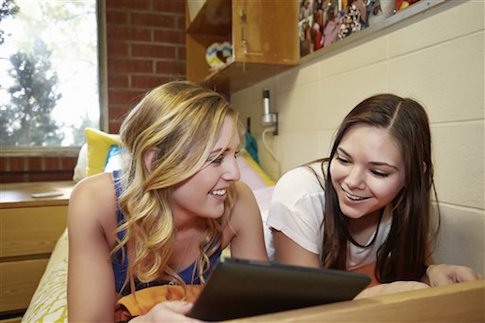The federal government is financing the development of a smartphone app that will use facial recognition technology to check attendance in college classrooms.
The National Science Foundation (NSF) awarded $50,000 to Missouri University of Science and Technology on Jan. 2 for the project that will record videos to create "face tracklets" of students.
The project is necessary, the grant argues, because checking attendance the old fashioned way is too hard.
"Checking attendance in scenarios such as classrooms commonly needs an instructor to recognize each student one by one by reading the names on a roster or ask students to sign up the attendance sheet," the grant explains. "However, this traditional method faces two problems: reading students' names may occupy minutes of lecture time when the number of students is large and letting students to sign up an attendance sheet is prone to be cheated since they can sign their own names and their classmates' names who are absent in the class."
"It is not a desirable task for instructors to calculate the total attendance of every student in a semester by going through every attendance sheet manually," the grant added.
The solution is training professors to use a mobile app that will keep track of attendance by storing photos of all of their students, according to the NSF grant.
"By taking videos of student faces in classrooms using Smartphone cameras, the team proposes a unified framework of visual face detection, tracking and recognition algorithms to recognize multi-faces in the video simultaneously," the grant said.
The study, led by Zhaozheng Yin, an assistant professor in Missouri S&T’s computer sciences department, will involve professors taking a video of each student’s face during the first lecture.
"The application will automatically build a face dataset for the course and the instructor only needs to identify them for the first class; in the remaining classes, instructors take videos of each class and the application will do automated attendance check," the grant said.
The app will store "face tracklets," or multiple photos of a student in different poses.
Before he was awarded the grant, Yin published a study "Who Missed the Class?–Unifying Multi-Face Detection, Tracking, and Recognition in Videos," which explains the methodology of the proposed project.
The preliminary study trained face recognizers using a series of images of students making different facial expressions, and concluded that videos could be an effective way to check attendance.
The NSF has invested in other projects using facial recognition technology, including a universal BMI detector that "can be used by everybody at anywhere and anytime," costing taxpayers over $200,000.
